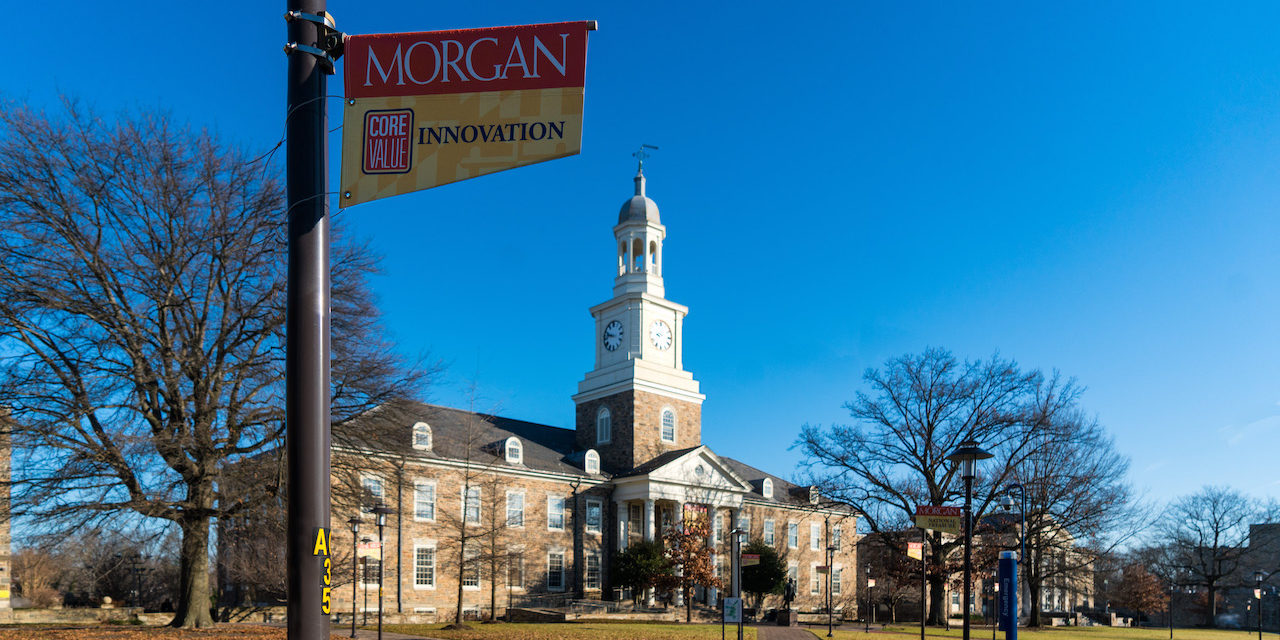Courtesy of Morgan State University
Morgan State University has received a grant award of $596,383 from the National Science Foundation (NSF) to study the responsiveness to environmental indications of fire through the in-depth analysis of human behavior in diverse situations and physical cues. In addition, the research findings will also be used to improve fire safety systems, particularly in the home. The grant is a first-of-its-kind awarded to a Historically Black College or University (HBCU) through the NSF Decision, Risk and Management Sciences, Office of Integrative Activities, and HBCU Excellence in Research (EiR) integrated programs, to conduct this type of research. Morgan’s Justin Bonny, Ph.D., assistant professor of Psychology in the James H. Gilliam, Jr. College of Liberal Arts (CLA) serves as the principal investigator.
“Theories of grounded cognition emphasize that how a person perceives and processes information is shaped by the environment they are within,” said Dr. Bonny “We are applying this to fires to better understand how the same developing fire occurring in say, for example, a kitchen may be perceived differently than in a bedroom. This allows us to investigate how different properties of developing fires are connected to perception and decision-making.”
Funded through June 2024, the study entitled, “Detecting Changes in Developing Fires and Posed Risk,” aims to better understand human perception of budding fires, how the inherent risks are interpreted and the spectrum of responses that they illicit. Identifying whether a real threat is present is a crucial step in taking decisive action. To fully account for the wide range of variables that are required for such action, the study employs a uniquely interdisciplinary approach.
Dr. Bonny enlisted James A. Milke, Ph.D., professor and chair of the Department of Fire Protection Engineering at the A. James Clark School of Engineering at the University of Maryland, to serve as the Co-PI on the study bringing together the expertise of a psychologist and a fire protection engineer.
“I think that is a unique approach of this research, combining the expertise of different disciplines to advance fire safety science,” added Dr. Bonny.
Previous fire research has observed that individuals can detect changes in visible fire cues, however it is unknown whether individuals use the rate of change in pronounced fire cues to judge posed risk. This represents one of many outcomes this Morgan-led research aims to uncover.
Human participants will participate in the study and be prompted to make decisions and judgements in response to software-simulated building fires. Past studies observed that initial signs of a fire tend to be ambiguous, with occupants often investigating the source. Exploring this connection, the research will identify the extent to which dynamic changes in fire cues are used by occupants to assess the posed risk of a fire and influence pre-movement decision making, which can be incorporated into theoretical models of occupant behavior.
Findings from the research are also expected to aid in improving the design of single dwelling and multi-unit building design as well as safety systems in general. In addition, Morgan will be home to a cache of primary data and a virtual room of fire simulations forming an exclusive fire research portfolio of human behavior.
“I am hoping this study can connect researchers in the behavioral sciences and fire protection engineering, lowering the barriers for scientists in these respective fields to engage in human behavior in fire research. My goal is for this project to help position Morgan State to be a research hub in the field of human behavior in fire,” said Dr. Bonny.
The award underwriting the research study will also fund a graduate student research assistant for the term of project.





